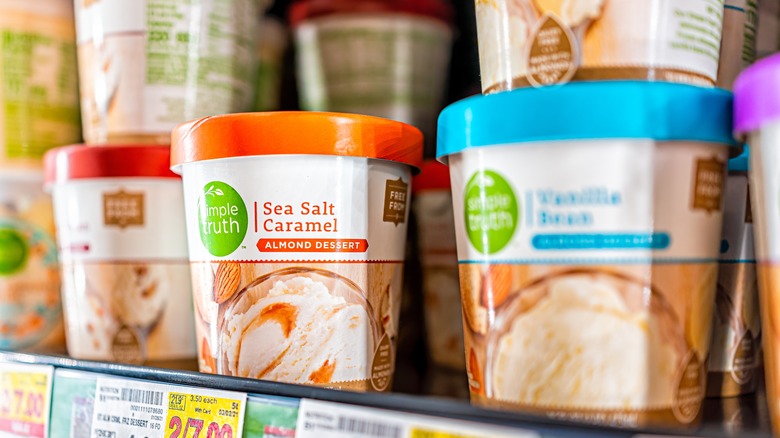New Report Reveals Why Food Shoppers Love Store Brand Products
There's no doubt that grocery shopping changed when the COVID-19 pandemic upended supply chains, kept workers at home, and sent buyers online for grocery delivery or pickup. As with most aspects of daily life, buyers adjusted and adapted. But are those changes permanent? While nobody knows for sure, a recent report from the Food Industry Association (FMI) gives a glimpse at one defining aspect of consumer-purchase habits.
The association's 2022 Power of Private Brands report, released on June 21, 2022, reveals how shoppers viewed and purchased private-label food items pre-pandemic compared to now. A considerable change occurred over a roughly two-year period, with food shoppers embracing store brands like never before — and it's not just price considerations fueling the shift. Doug Baker, Vice President of Industry Relations for FMI, states in the release that shoppers involved in the study pinpointed four reasons, on average, for selecting private-brand food products over name brands.
More than just money
With the global food price index averaging all-time high levels in March 2022, according to Statista, food inflation inevitably influences food choices. Coupled with the Consumer Price Index (CPI) forecasting continued price increases between 3% and 4% for 2022, the cost savings for store-branded food items start to look pretty good. According to the Power of Private Brands 2022 report, a whopping 40% of consumers purchased more private brands after the pandemic hit, and about 75% of them plan to keep doing so. Of those private-label buyers, 55% choose those brands because they cost less, and 63% recognize them as having good value.
But there's more to the story. A high percentage of shoppers in the study identify more nuanced reasons for continuing to purchase private brands, notes Baker. When questioned on 14 different product attributes, four rose to the forefront: taste, quality, sustainability, and positive effects to health. Almost half of buyers in the study chose quality and taste as reasons for buying store brands, while 20% identified health benefits, and 19% cited sustainability factors or environmental impacts.
It's important to note that trends like these have happened before. Business Insider points out that name-brand to private-label shifting occurred during the economic upheaval of the 2008 recession, and similar patterns are recurring in 2022. Whether consumers who newly discover private-label food items stick to those choices this time is yet to be seen.

